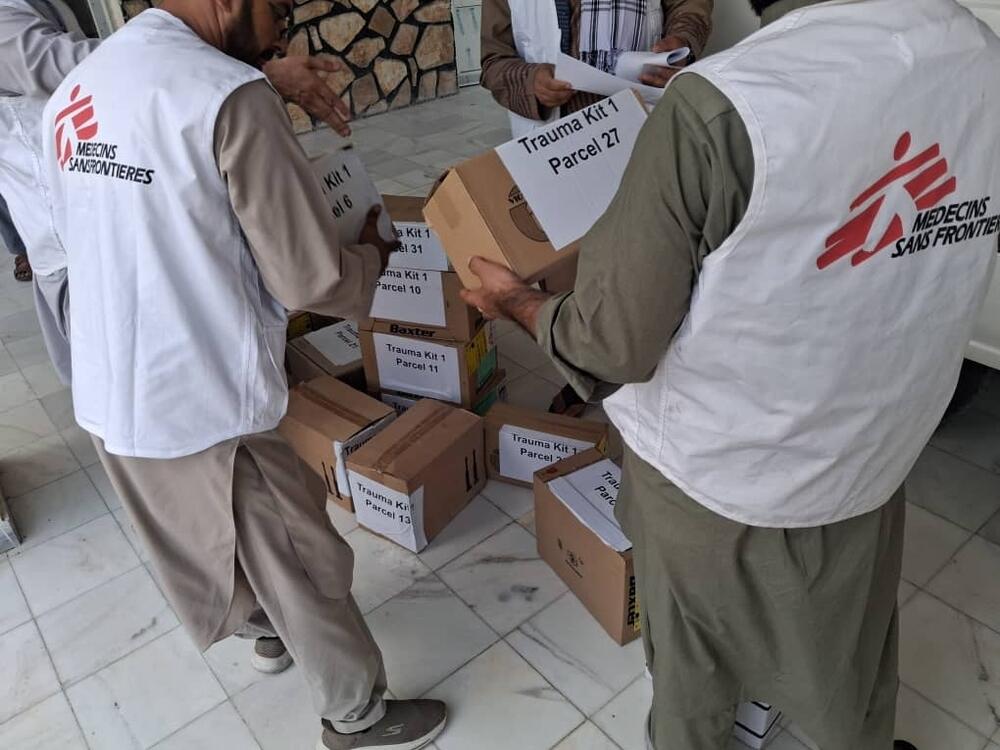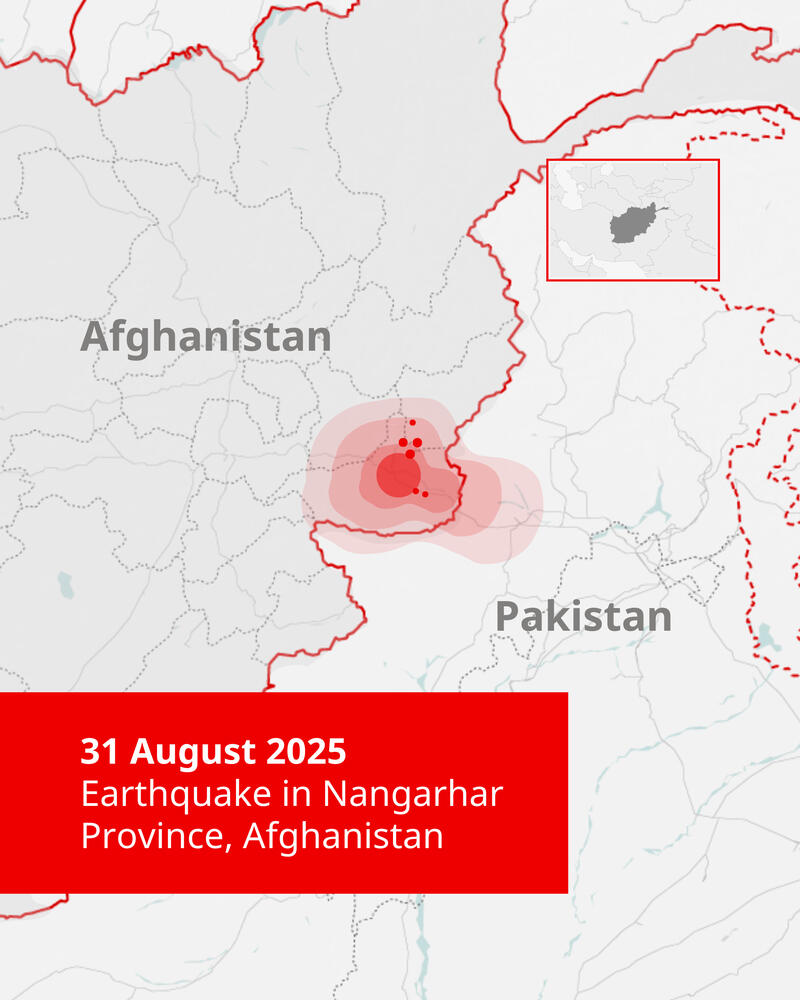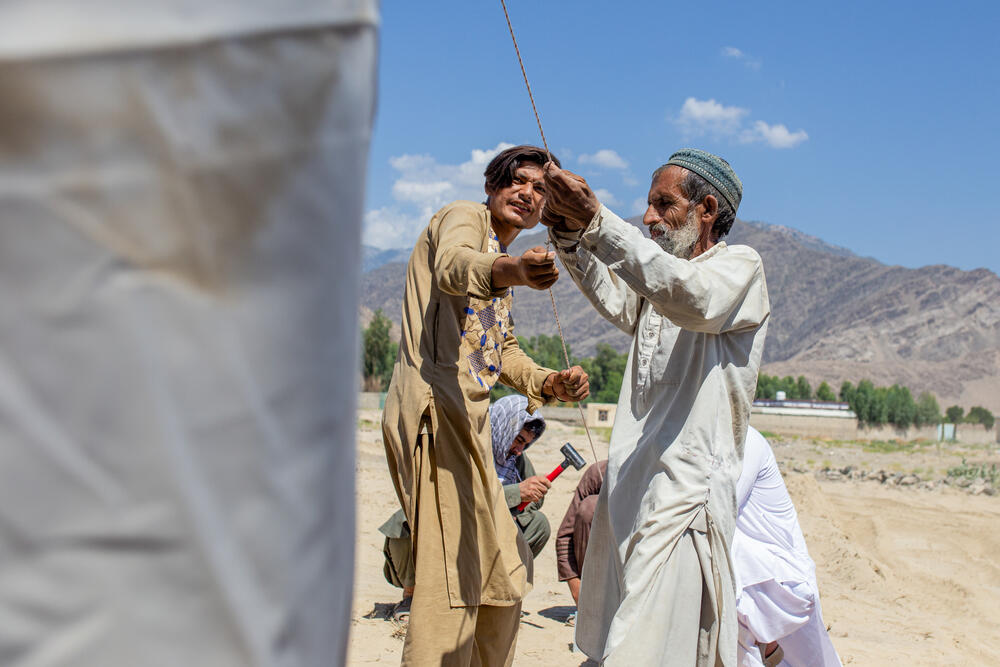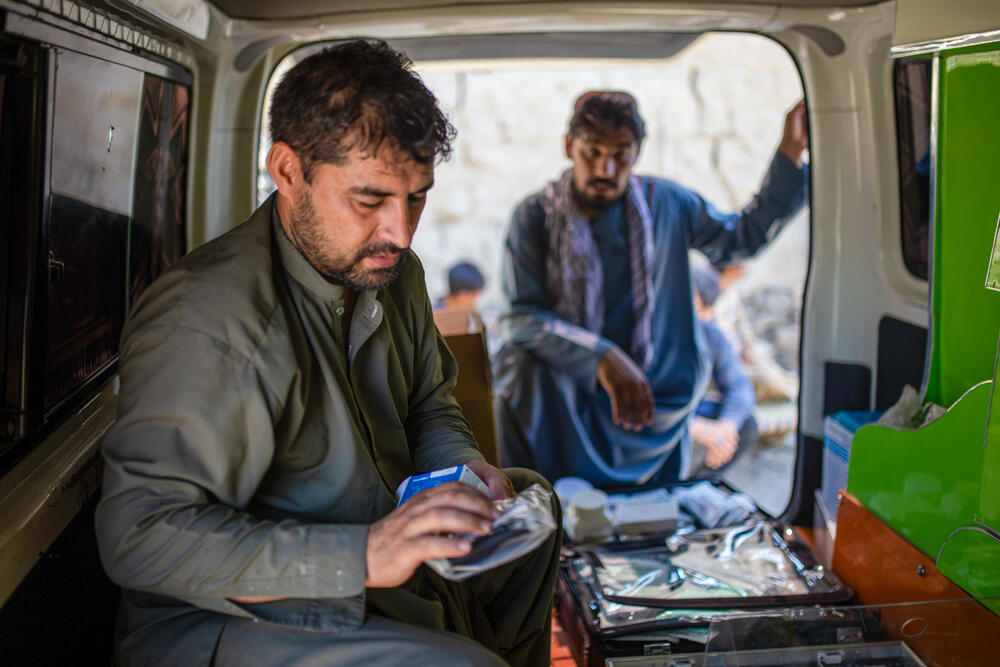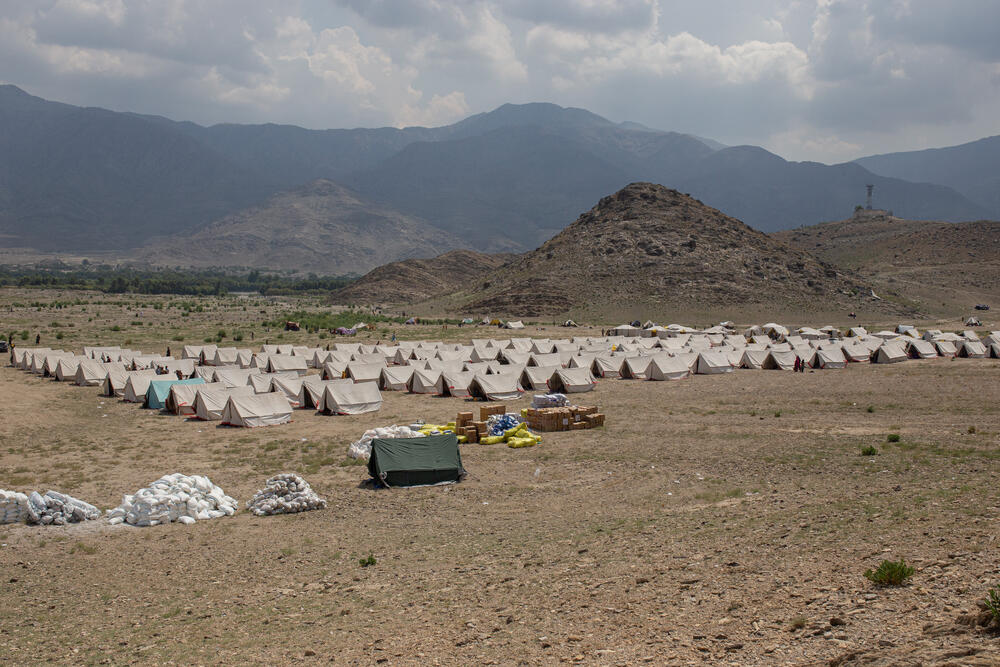Afghanistan earthquake: What is MSF doing and how can I help?
Three earthquakes have struck eastern Afghanistan in less than a week. At least 2,200 people are reported to have been killed and more than 3,000 injured.
Entire villages have been reduced to rubble, with many people still trapped. Tragically, the death toll is expected to rise.
The disaster hit the Kunar and Nangarhar provinces. The epicentre is in a remote and mountainous area that is difficult to access, making rescue efforts challenging. Local hospitals were quickly overwhelmed with the injured. According to the United Nations, around half a million people are in need of urgent health assistance.
How can I help MSF in Afghanistan?
Right now, our teams are responding in Afghanistan and assessing the medical and humanitarian needs.
This is only possible because of donations from people like you.
By giving to our general funds today, you will be helping to ensure we can respond to emergencies around the world, like the earthquake in Afghanistan.
Please donate today to support our emergency teams.
Click here to learn more about how we spend your money.
How is MSF responding?
- MSF teams are providing medical support in Patang camp, Kunar province, where around 1,000 affected families are being relocated. They are carrying out outpatient consultations including wound dressing, outbreak prevention, routine vaccination, women’s health and mental health.
- We have carried out assessments in several hospitals and medical facilities across Nangarhar and Kunar provinces where teams have distributed trauma and emergency kits.
- Emergency water and sanitation support is critical. MSF teams installed ten latrines and distributed ten small water tanks with around 3,000 litres capacity each to the displaced population in Zerai Baba camp.
- As displaced people are still arriving in the camps, proper water and sanitation systems are essential to avoid the spread of diseases such as malaria, acute water diarrhoea and respiratory infections.
- We are experts at mobilising a response to catastrophic natural disasters. Read more >
Our teams are often among the first humanitarian responders on the ground for one key reason: because we are already there.
MSF has been working in Afghanistan since 1980, providing vital healthcare services through conflict, insecurity and disaster.
In 2025, Afghanistan remains home to some of our largest and busiest hospitals worldwide.
MSF and natural disasters
With over 50 years' of experience, we are experts in rolling out emergency responses in complex settings.
Within a matter of minutes, natural disasters such as tsunamis, earthquakes and hurricanes can overwhelm an entire population.
Hundreds and even thousands of people can be injured or traumatised by the loss of family, friends and homes.
Clean water, healthcare and transport are also often casualties in these disasters. Rapid medical care and coordinated emergency response are vital to protect survivors.
From large-scale catastrophes to local emergencies, MSF’s network of aid workers and supplies around the world means we can quickly respond to disasters.
